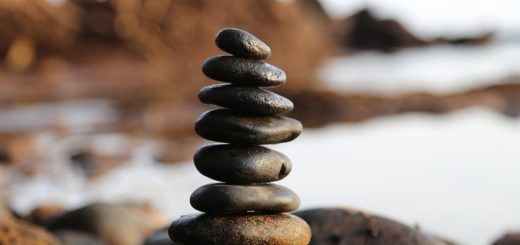Egyptian Mysteries: Spirituality in the Ancient Nile Civilization

Before diving in, please note: This post is for informational purposes only. If you’d like to know more about how we approach topics, feel free to check out our friendly Disclaimer Page.
Hey there, amazing readers! 🖐️ Just a quick note: yes, we know there are a lot of ads here. Trust us, we get it—it’s not the prettiest look, but they help us keep this blog alive and kicking. Those pesky little ads cover the costs of all the behind-the-scenes magic, from hosting and tech stuff to creating content we hope you’ll love.
We’re committed to delivering quality posts, and your support (even just sticking around despite the ads) means everything to us. So, bear with us, and thanks for helping us keep the good vibes rolling. Now, on to the fun stuff! 😉
TRANSLATE BUTTON AT THE END OF THE ARTICLE
Egyptian Mysteries: Spirituality in the Ancient Nile Civilization
The ancient civilization of Egypt, nestled along the fertile banks of the Nile River, was home to a rich and complex spiritual tradition that spanned thousands of years.
Egyptian spirituality, often referred to as the "Egyptian Mysteries," permeated all aspects of life in ancient Egypt, from the beliefs about the afterlife to the rituals performed in temples.
This article delves into the diverse and fascinating world of Egyptian spirituality, exploring its core beliefs, rituals, symbols, and practices.
Ancient Egyptian Beliefs: A Deep Dive into the Afterlife
One of the central aspects of Egyptian spirituality was the belief in the afterlife.
The Egyptians believed that death was not the end but rather the beginning of a new journey.
They believed in the existence of the soul, which they referred to as the "ka" or the life force.
The afterlife was seen as a continuation of life on earth, and it was believed that the deceased would need their body and possessions in the afterlife.
To ensure a prosperous afterlife, the ancient Egyptians practiced elaborate burial rituals and constructed grand tombs and pyramids.
The Role of the Pharaoh: A Divine Connection to the Gods
In ancient Egypt, the pharaoh held a unique position as the intermediary between the divine realm and the mortal world.
The pharaoh was seen as a living god, the embodiment of the gods on earth.
This divine status bestowed upon the pharaoh gave him immense power and authority, both in the spiritual and political realms.
The pharaoh’s connection to the gods was vital for the prosperity and well-being of Egypt, and his duties included performing and overseeing religious rituals and maintaining the cosmic balance.
Unveiling the Secrets of Egyptian Hieroglyphs and Symbols
The ancient Egyptians developed a sophisticated system of writing known as hieroglyphs, which played a significant role in their spiritual beliefs and practices.
Hieroglyphs were not just a form of communication but also a reflection of the divine order.
The intricate symbols and pictographs were believed to possess magical and sacred qualities.
Understanding hieroglyphs allows us to gain insight into the religious and spiritual concepts of ancient Egypt, as they were used extensively in religious texts, temple inscriptions, and tombs.
Temples and Rituals: Sacred Spaces in Ancient Egypt
Temples were considered the dwelling places of the gods in ancient Egypt.
They were meticulously constructed and adorned with intricate carvings and paintings, symbolizing the realms of the gods and their interaction with the mortal world.
These sacred spaces were where the rituals and ceremonies essential to Egyptian religious practice took place.
Rituals often involved offerings, purification, and prayers performed by priests and priestesses.
The purpose of these rituals was to maintain cosmic harmony, seek divine favor, and ensure the well-being of the community.
The Enigmatic Sphinx: Guardian of Ancient Egyptian Mysteries
The Great Sphinx, a colossal statue with the body of a lion and the head of a human, stands as a testament to the mysteries and enigmas of ancient Egypt.
Carved out of limestone, the Sphinx was believed to be a guardian figure, protecting the tombs and temples from evil spirits and intruders.
Its association with the sun god, Ra, further emphasized its role as a protector of divine secrets.
The Sphinx continues to captivate the imagination of people worldwide, symbolizing the enduring allure and intrigue of ancient Egyptian spirituality.
Exploring the Magic and Power of Egyptian Amulets
Amulets held a significant place in Egyptian spirituality.
These small objects, often made of precious stones or metals, were believed to possess protective and magical properties.
Amulets were worn by both the living and the deceased, serving as a means of connecting with the gods and warding off evil forces.
Each amulet had specific symbolism and purpose, with popular examples including the ankh, representing eternal life, and the Eye of Horus, symbolizing protection and good health.
Gods and Goddesses: The Divine Pantheon of Ancient Egypt
The ancient Egyptians worshipped a pantheon of gods and goddesses, each with their own unique attributes and roles.
These deities represented various natural and cosmic forces, and their worship was integral to maintaining the balance and order of the universe.
Explore the Path to Spirituality and Enlightenment – Start Here.
Some of the most well-known Egyptian gods include Ra, the sun god; Osiris, the god of the afterlife; Isis, the goddess of magic and fertility; and Horus, the god of kingship and protection.
The Egyptian pantheon was vast and complex, reflecting the diverse aspects of life and nature.
The Book of the Dead: Navigating the Underworld in Ancient Egypt
The Book of the Dead, also known as the "Book of Coming Forth by Day," was a collection of funerary texts and spells that guided the deceased through the perilous journey of the afterlife.
It contained instructions and prayers to help the soul navigate the challenges and obstacles encountered in the realm of the dead.
The contents of the Book of the Dead varied, depending on the individual’s social status and personal beliefs.
It was an essential part of burial rituals and was buried alongside the deceased to provide guidance and protection in the afterlife.
The Rituals of Mummification: Preserving the Soul for Eternity
Mummification was a complex and elaborate process practiced by the ancient Egyptians to preserve the body and soul for eternity.
The belief in the preservation of the physical body was rooted in the notion that the soul needed a physical vessel in the afterlife.
The mummification process involved removing the internal organs, preserving the body using natural substances, and wrapping it in linen bandages.
The mummy was then placed in a sarcophagus and buried in a tomb with various funerary goods.
Mummification rituals were conducted by highly skilled embalmers and were an essential part of Egyptian funerary traditions.
Egyptian Astrology: A Sacred Connection to the Stars
Ancient Egyptian spirituality also encompassed a deep fascination with the stars and the cosmos.
Egyptian astrology, known as "decans," was a system that divided the night sky into thirty-six sections, each associated with specific gods and goddesses.
The position of the stars at the time of a person’s birth was believed to influence their personality, destiny, and interactions with the divine.
Astrology played a significant role in various aspects of Egyptian life, including determining auspicious times for rituals, guiding decision-making, and offering insights into an individual’s spiritual path.
Legacy of the Ancient Nile: Unraveling the Secrets of Egyptian Spirituality
The rich and intricate tapestry of Egyptian spirituality continues to captivate and inspire people to this day.
The beliefs, rituals, and symbols of ancient Egypt provide a glimpse into a civilization deeply connected to the divine and the natural world.
Through their reverence for the afterlife, their worship of gods and goddesses, and their complex rituals, the ancient Egyptians sought to understand the mysteries of existence and forge a profound connection with the spiritual realm.
The legacy of Egyptian spirituality endures, reminding us of the enduring human quest for meaning, transcendence, and the eternal.
Conclusion
Egyptian spirituality in the ancient Nile civilization was a complex and multifaceted system that influenced all aspects of life.
From their beliefs about the afterlife to the rituals performed in temples, the ancient Egyptians sought to understand and connect with the divine.
Through the roles of the pharaohs, the mysteries of hieroglyphs and symbols, and the enchantment of amulets, the spirituality of ancient Egypt remains an enigma that continues to intrigue and inspire us today.
By unraveling the secrets of Egyptian spirituality, we gain insight into a civilization that revered the divine, celebrated life and death, and left behind a profound legacy that still echoes through the sands of time.

The Enlightenment Journey is a remarkable collection of writings authored by a distinguished group of experts in the fields of spirituality, new age, and esoteric knowledge.
This anthology features a diverse assembly of well-experienced authors who bring their profound insights and credible perspectives to the forefront.
Each contributor possesses a wealth of knowledge and wisdom, making them authorities in their respective domains.
Together, they offer readers a transformative journey into the realms of spiritual growth, self-discovery, and esoteric enlightenment.
The Enlightenment Journey is a testament to the collective expertise of these luminaries, providing readers with a rich tapestry of ideas and information to illuminate their spiritual path.
Our Diverse Expertise 🌟
While our primary focus is on spirituality and esotericism, we are equally passionate about exploring a wide range of other topics and niches 🌍📚. Our experienced team is dedicated to delivering high-quality, informative content across various subjects ✨.
To ensure we provide the most accurate and valuable insights, we collaborate with trusted experts in their respective domains 🧑🏫👩🏫. This allows us to offer well-rounded perspectives and knowledge to our readers.
Our blog originally focused on spirituality and metaphysics, but we’ve since expanded to cover a wide range of niches. Don’t worry—we continue to publish a lot of articles on spirituality! Frequently visit our blog to explore our diverse content and stay tuned for more insightful reads.








